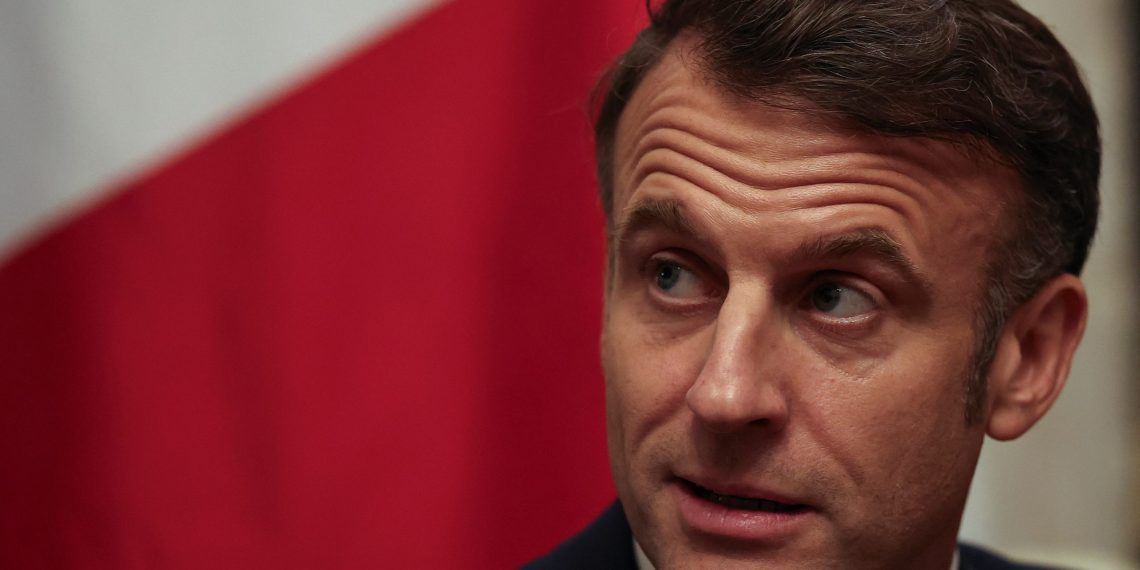In a move that has sent shockwaves through French politics, Emmanuel Bonne, President Emmanuel Macron’s trusted diplomatic adviser and de facto shadow foreign minister, has tendered his resignation. This stunning development leaves Macron’s inner circle on shaky ground at a time when France is grappling with domestic instability, diplomatic challenges, and a shifting global order.
Bonne, often seen as the architect of Macron’s foreign policy strategies, informed the president of his decision last Friday, according to multiple insiders. While the resignation has yet to be accepted, its implications are already reverberating through the Élysée Palace and beyond.
A Rift Too Deep: The Bonne-Mandon Rivalry
Bonne’s abrupt decision follows a long-simmering feud with General Fabien Mandon, Macron’s chief of military staff. Mandon, appointed less than two years ago, has been accused of “encroaching” on Bonne’s turf, leading to a fierce power struggle within the president’s advisory team.
“There’s been ferocious competition between the two for a long time,” said a source close to Macron. Tensions reportedly came to a head last week when Bonne and Mandon clashed ahead of a critical diplomatic meeting with British Prime Minister Keir Starmer. Bonne skipped the trip to Chequers at the last minute—a clear sign that internal disputes were boiling over.
Foreign Policy Divisions: Algeria, Morocco, and the Western Sahara
Bonne’s resignation also highlights deep policy fractures within Macron’s administration. Last year, Macron made the controversial decision to back Morocco’s claim to Western Sahara, a move seen as a betrayal by Algeria and a break from France’s historically neutral stance. Bonne, a staunch advocate of traditional French diplomacy, favored neutrality and reportedly clashed with Macron over the shift.
Repeated spats over Algeria appear to have worn Bonne down. The North African nation has become a flashpoint for France, with tensions escalating after accusations from Interior Minister Bruno Retailleau that Algiers was attempting to “humiliate” France. Justice Minister Gérald Darmanin further fueled the fire this week by calling for an end to visa-free access for Algerian officials.
“The Algerian file has been exhausting,” said one insider, noting Bonne’s frustration with the lack of cohesion in Macron’s foreign policy.
A Nation in Flux: Macron’s Leadership Under Pressure
Bonne’s potential departure couldn’t come at a worse time for Macron. France’s domestic political scene is fraught with unrest, budget negotiations are at an impasse, and the country’s influence in Europe and Africa is waning. On the global stage, France must now navigate a volatile international landscape shaped by Donald Trump’s return to the U.S. presidency and ongoing geopolitical crises.
“It’s a mess,” admitted a former French diplomat. “The domestic political situation, the impossible budget talks, the future relationships with Trump and Algeria, France’s waning influence in Europe and Africa… We are going to have to work hard to bounce back.”
What Happens Next?
While the Élysée maintains that “Emmanuel Bonne enjoys the trust of the president,” his resignation—if finalized—would leave a significant void in Macron’s foreign policy apparatus. Bonne’s extensive network and nuanced approach to diplomacy have been cornerstones of Macron’s international strategy. Losing him could weaken France’s ability to project influence at a time when global alliances are being reshaped.
For now, the fate of Bonne’s resignation remains uncertain. But whether he stays or goes, the cracks in Macron’s administration have been laid bare, leaving France facing tough questions about its leadership, unity, and vision for the future.









